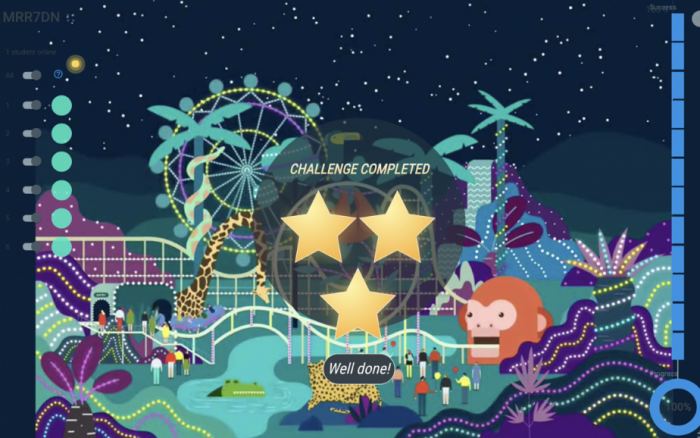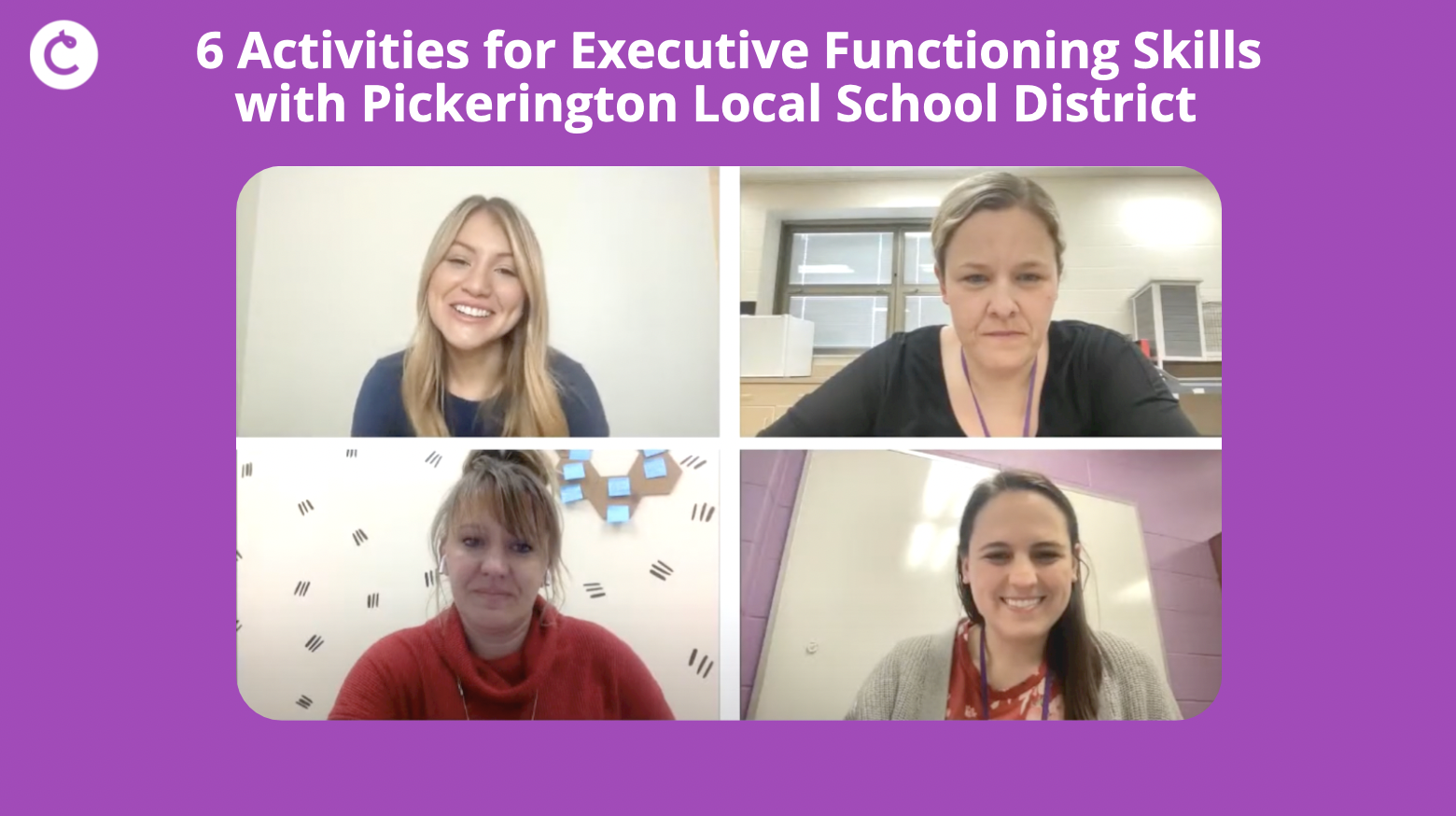6 Activities for Executive Functioning Skills with Pickerington Local School District
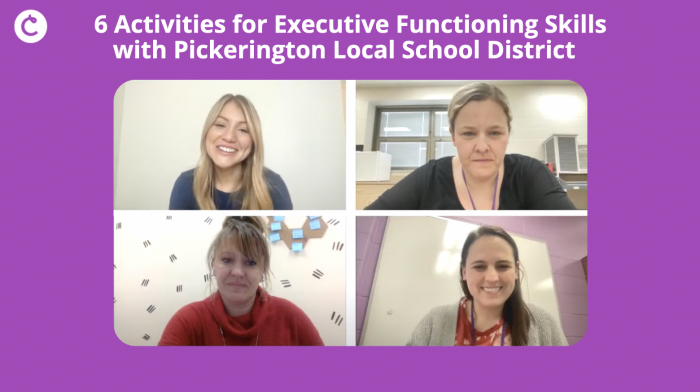
While the pandemic may be coming to an end, the long-lasting effects on students around the globe remain. Due to the break from the classroom, districts are noticing a rise in behavioral issues and mental health challenges amongst students as well as an overall lack of basic skills required to find success in the classroom. Pickerington Local School District educators Stephanie Howell, Tara Ruckman, and Ashley Neuenschwander identified these gaps within their district and have placed a focus on executive functioning skills development at a Tier 1 level through a variety of activities.
A study by Harvard University’s Center on the Developing Child states “executive functioning skills help us remember the information we need to complete a task, filter distractions, resist inappropriate or non-productive impulses, and sustain attention during a particular activity.” Stephanie, Tara, and Ashley came to the realization that for many students, these basic executive functioning skills do not come naturally, they need to be taught and fostered from a young age. Tara shares, “We have to remember that students are not born with these skills. We don’t know which students are being taught these skills at home and which are not.”
Below are six activities that Tara, Ashley, and Stephanie have developed to support the development of these skills:
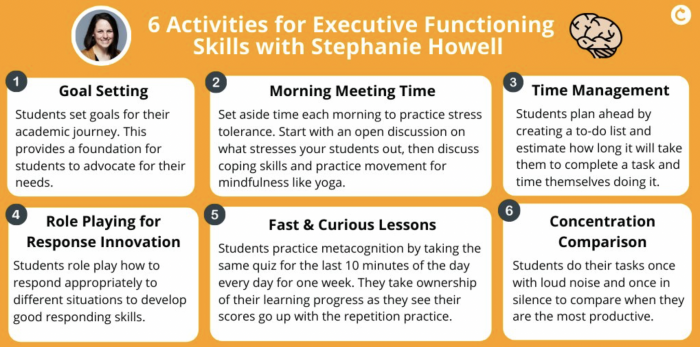
Goal Setting: Students set goals for their academic journey. This provides a foundation for students to advocate for their needs.
Morning Meeting Time: Set aside time each morning to practice stress tolerance. Start with an open discussion on what stresses your students out, then discuss coping skills and practice movements for mindfulness like yoga.
Time Management: Students plan ahead by creating a to-do list and estimate how long it will take them to complete a task and time themselves doing it.
Role-Playing for Response Innovation: Students role-play how to respond appropriately to different situations to develop good responding skills.
Fast & Curious Lessons: Students practice metacognition by taking the same quiz for the last 10 minutes of the day every day for one week. They take ownership of their learning progress as they see their scores go up with the repetition practice.
Concentration Comparison: Students do their tasks once with loud noise and once in silence to compare when they are most productive.
Try using Classtime for your executive functioning activities:
1. Practice time management with your students using Classtime’s session timer. The session timer requires students to complete their work in a given amount of time:
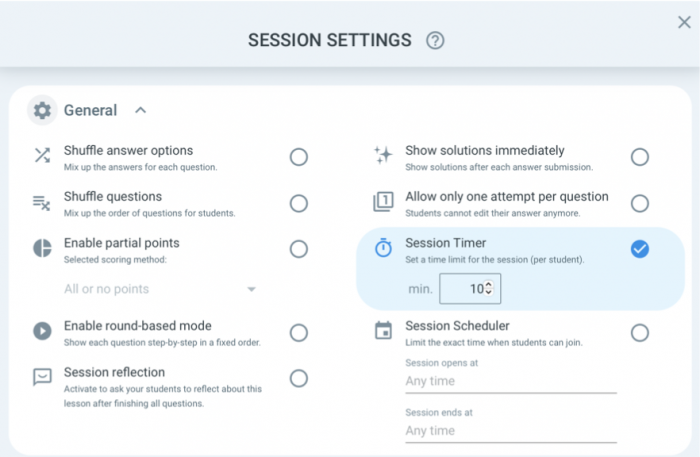
2. Nurture self-awareness and support metacognition by giving students the chance to intentionally think about their learning process at the end of a session with Classtime’s student reflection:
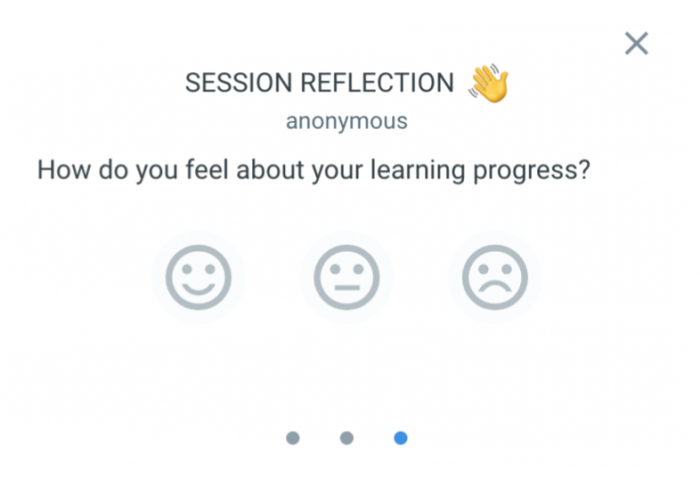
3. Classtime can be adapted easily to The Fast and Curious EduProtocol and is ideal if you want students to learn new information like math facts or vocabulary words. While this EduProtocol takes five class days total, it only uses 15 minutes of your time each day. Use Classtime to introduce new material, practice repetition, and assess the knowledge of the class as a whole with Collaborative Challenges. Learn more about how to use the Fast and Curious EduProtocol with Classtime.
